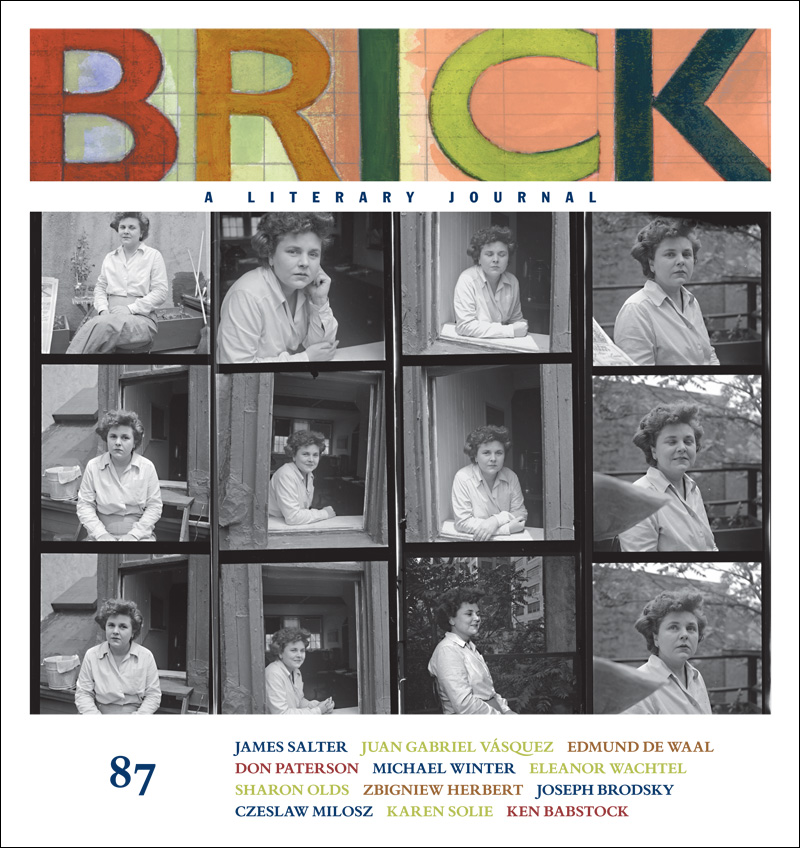In December 2010, as chair of the Writers in Prison Committee of PEN International, I was invited to attend the Nobel Peace Prize ceremony in Oslo to celebrate the ideals that we in PEN also share and work for—freedom of expression, democracy, and peace. In the words of the absent laureate Liu Xiaobo: “Freedom of expression is the foundation of human rights, the source of humanity, and the mother of truth.” Liu is currently serving eleven years in a very remote prison for seven sentences (224 Chinese characters) concerning the Chinese dissidents’ manifesto for democracy, called Charter 08, that he and others wrote in 2008. Liu Xiaobo was the first president of the Independent Chinese PEN Centre (ICPC), and he is a long-standing case of the Writers in Prison Committee of PEN International.
In deep winter already, Oslo was very cold. The surrounding countryside was blanketed in snow, the trees were etched in frost, and candlelit restaurants in the intimate city centre were filled with jolly Norwegians celebrating Christmas. On the morning before the Nobel ceremony, PEN and Amnesty International held a breakfast seminar at which Scottish PEN’s wonderfully expressive “empty chair” was prominently displayed. This beautiful little chair was commissioned from some young Scottish art students to acknowledge the PEN tradition of “the empty chair” honouring an absent writer, a tradition that would be echoed in the Nobel ceremony that afternoon. Standing behind it, Tienchi Martin Liao (current president of the ICPC and friend of both Liu and his wife Xia) brought Liu Xiaobo into the room with these words: “Liu Xiaobo’s dinner on December 10, 2010, may look like this: boiled vegetables with sand and a few pieces of fat meat as a special treat. He might have an extra piece of steamed bread, and his rice bowl could also be refilled today. In short, it is a privileged meal that will long be remembered, because it is a meal that will leave the stomach truly filled. After all, he is the first Chinese to win the Nobel Peace Prize.”
In the afternoon, one thousand people gathered in Oslo’s City Hall; Norway’s king and queen sat with the crowd, facing the low stage. A Norwegian soprano began the ceremony with Edvard Grieg’s exquisite “Solveig’s Song,” a lament for an absent lover, which that day seemed to be the song of Liu’s wife, Xia, also prevented from travelling to Oslo by China. (Not only has she been under house arrest and completely cut off from the outside world since October 20, but the day before the Nobel ceremony, an enormous barrier was erected outside her Beijing apartment so no one could photograph it.)
In a brilliantly crafted speech, delivered in English, Nobel Committee Chairman Thorbjørn Jagland cited Liu’s writings, notably Charter 08, and relevant sections of China’s constitution guaranteeing freedom of speech to China’s citizens. He noted that Liu’s award was in the tradition of Andrej Sakharov, Martin Luther King Jr., Desmond Tutu, and Aung San Suu Kyi, all of whose countries roundly condemned the awarding of the prize to them. The speech was broken by four protracted standing ovations; the king and queen stood for every one. Then the citation and medal were carefully placed on the Nobel Peace committee’s straight-backed empty chair, which is covered in a soft blue tapestry stitched with white birds in flight.
After a violinist played several Chinese traditional songs, actor and film director Liv Ullman read the lengthy “Final Statement” Liu made on the eve of being sentenced one year ago. Somehow the serenely aging, beautiful actor embodied the words of the slight, intense philosopher-poet, keeping clear the sense of something urgent and uncertain, written from a prison cell. In the reading, the aspirations of the Chinese people for democracy and the support of Westerners for our Chinese friends and colleagues were joined; many wept a little. Then, at Liu’s request (the only instructions the Nobel Committee received from him concerning the ceremony), a chorus of children sang.
I felt extraordinarily privileged to be there. There was something ineffably Norwegian about this ceremony—grace and dignity rather than formality, no pomp, even with royalty, just what we all happened to be doing in Oslo this cold Friday afternoon in December. Later, the torchlight parade had the same quiet certainty—simple phrases repeated in unison, wrapped and muffled people walking on snow, mittened hands wrapped around torches that illuminated ordinary faces, some Chinese, some from other countries, most Norwegian, some holding small portraits of Liu. Led by banners, they rounded the corner quite silently, then stood and faced the portrait projected onto the facade of the Grand Hotel over the balcony upon which the laureate would normally stand for greetings and applause. The square was very full, people spilling up the staircases at one end. They lingered even after their torches burned down.

Marian Botsford Fraser is a freelance writer and broadcaster, and the author of three acclaimed nonfiction books: Walking the Line: Travels Along the Canadian/American Border; Solitaire: The Intimate Lives of Single Women; and Requiem for My Brother. She has written for Granta, the Globe and Mail, the Walrus, the Literary Review of Canada, and has written and produced many documentaries for CBC Radio’s Ideas. She is a past president of PEN Canada.
